
IMF SUMMER SCHOOL 無料オンライン講座
IMFは夏季に無料のオンライン講座としてIMF SUMMER SCHOOLを開催しております。講座スケジュール当日に参加できず受講を逃してしまった方、IMF SUMMER SCHOOLの対象となった講座を下記でご確認ください。今からでもセルフ受講が可能です。前年度の講座も下部にて確認できます。
IMFオンライン教育は日本政府が支援しているプログラムです。
IMFはオンライン講座をedX(無料オンライン教育サービス)から発信しており、誰でも受講することができます。また、無料講座から有料オプション(インストラクターサポートや修了証などを含む)に変更ができます。
2025年 IMF SUMMER SCHOOL4つの講座の紹介
<講座で学ぶ内容>
- Understand the importance of regular debt reporting in the context of the Revised Guidelines for Public Debt Management.
- Explain the cost-risk characteristics of a debt portfolio, including guaranteed debt.
- Calculate relevant debt portfolio indicators and redemption profiles.
- Describe the importance of regularly publishing debt bulletins and annual debt management reports.
- Produce debt bulletins, debt reports, and investor relations presentations.
- Discuss relevant investor relations practices that improve debt transparency.
受講申し込みはコース画像をクリック↓
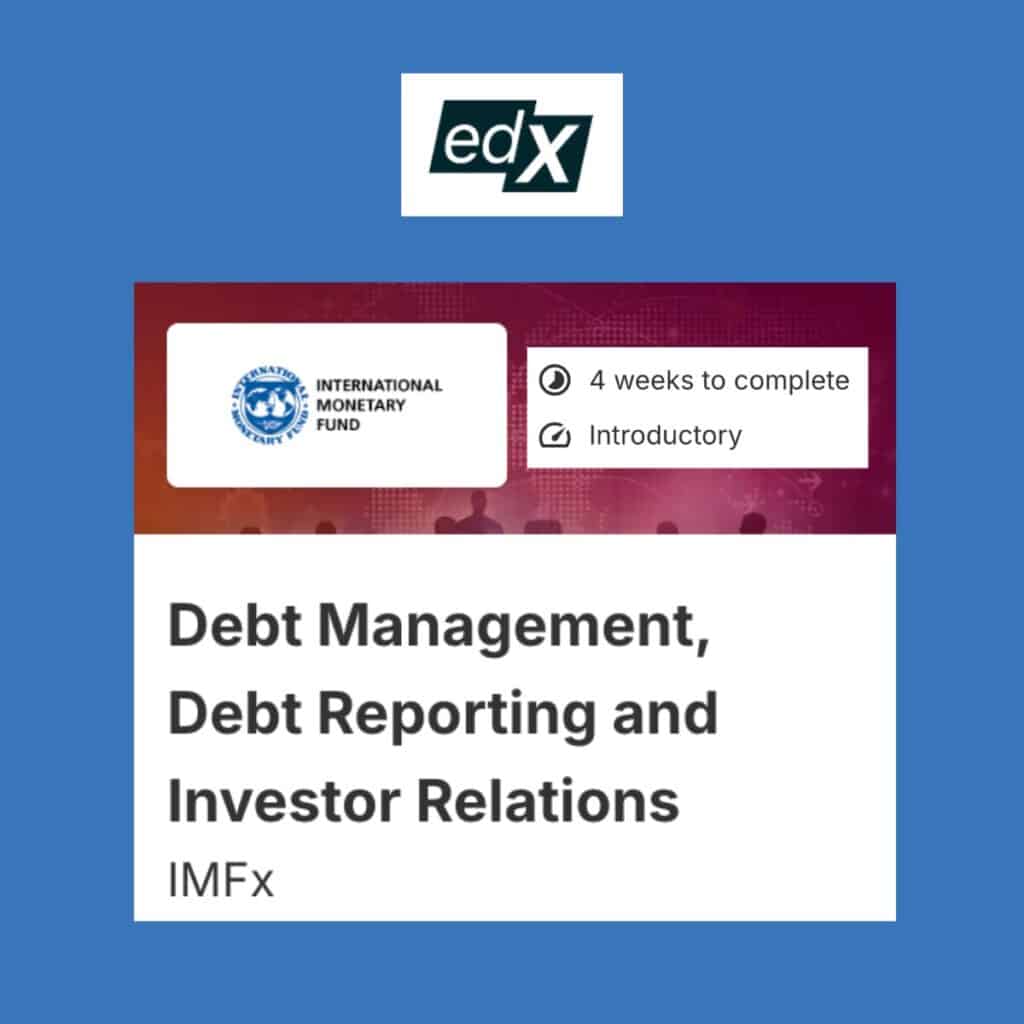
<講座で学ぶ内容>
- Describe the scope and use of MFS, including the source data for monetary statistics and the compilation process.
- Explain the conceptual framework underlying MFS compilation, focusing on sectoring, classification and valuation of financial instruments, as well as accounting principles.
- Understand the different measures of money supply and other key aggregates, as well as their compilation methods from sectoral balance sheets of financial corporations.
- Become familiar with the structure and components of central bank, other depository corporations, and other financial corporations sectoral balance sheets and link them to the compilation of the analytical surveys.
受講申し込みはコース画像をクリック↓
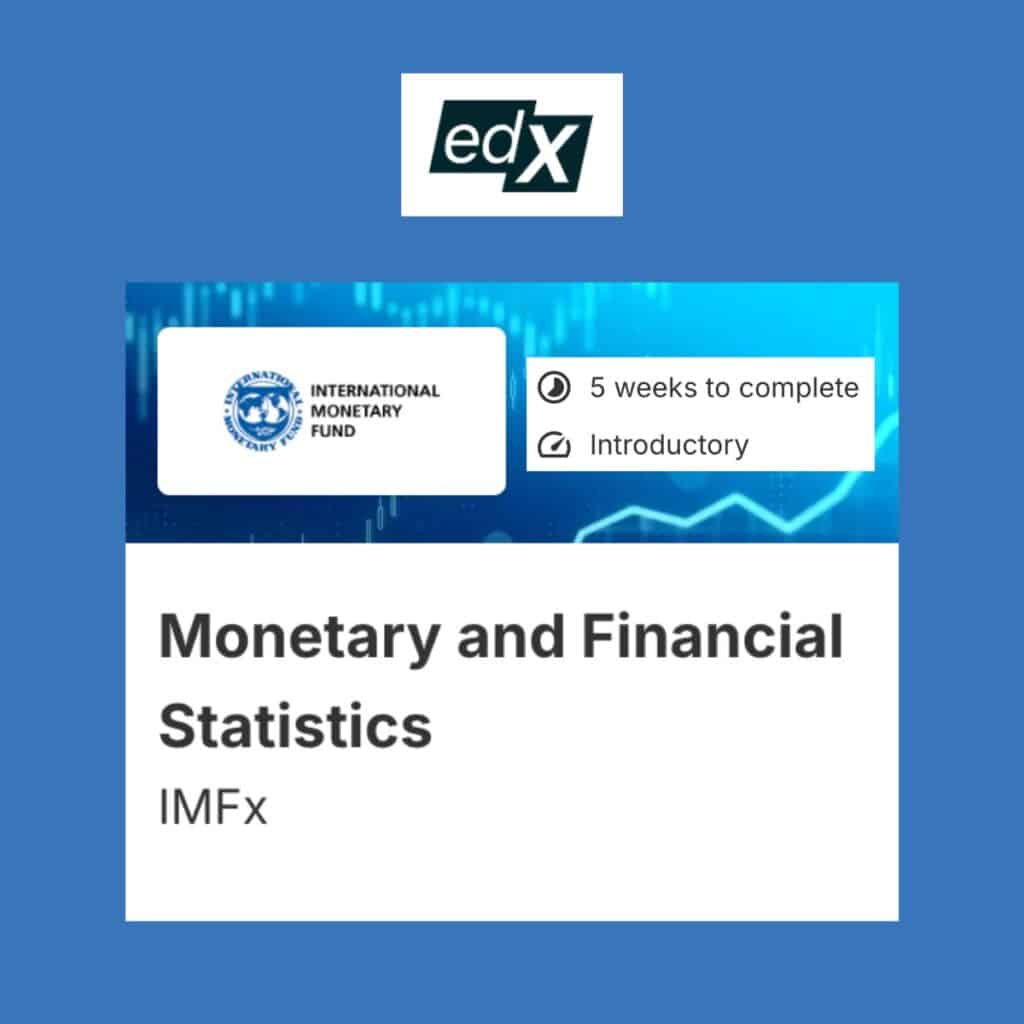
<講座で学ぶ内容>
- Describe the System of National Accounts framework, the main accounts and their balancing items.
- Identify the main institutional sectors and classify institutional units to sectors.
- Define the main accounts of the SNA framework, their relevance, and their balancing items / key macroeconomic aggregates.
- Outline the stocks and flows of non-financial assets, compilation methods and key data sources.
- Outline the main financial instruments and explain, the data sources, and compilation methods, and measurement issues to consider in deriving financial stocks and flows in financial assets and liabilities.
- Explain the FWTW framework and outline the analytical uses of the framework.
受講申し込みはコース画像をクリック↓
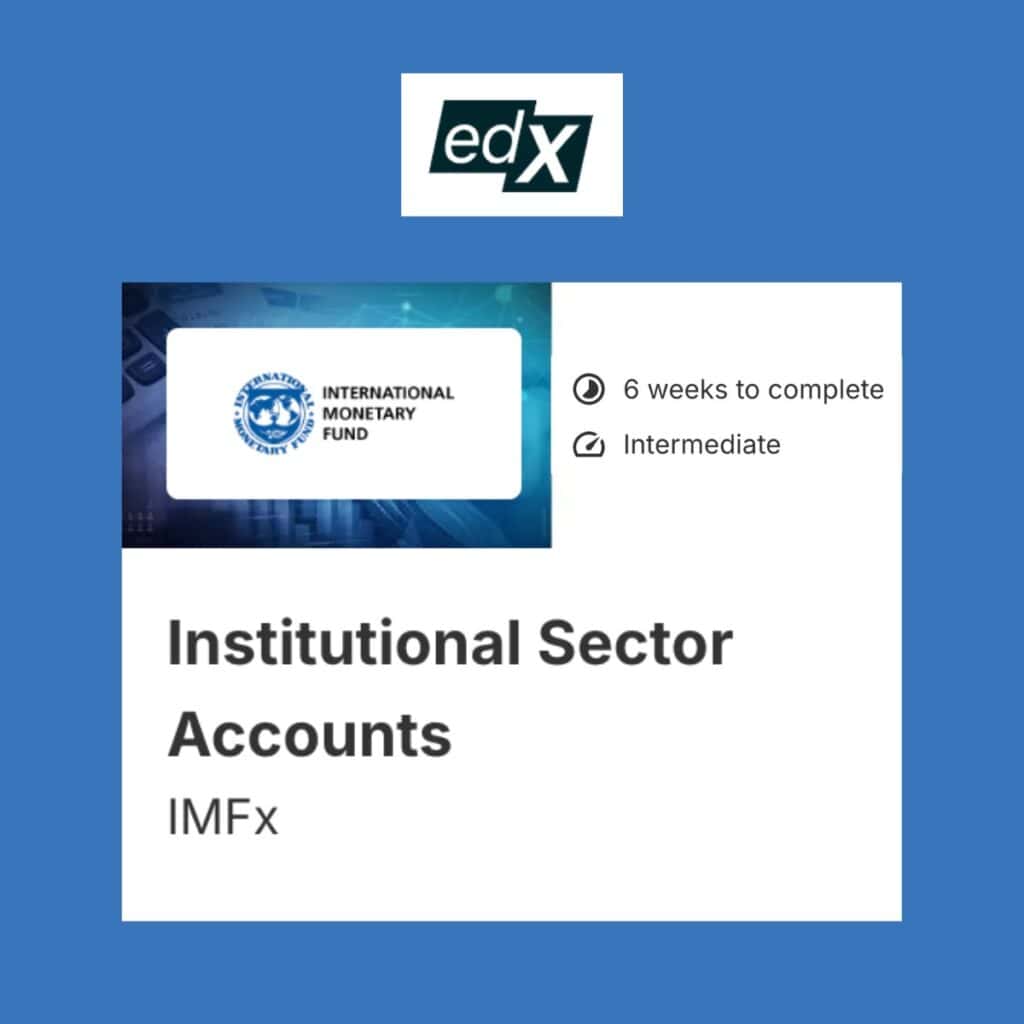
<講座で学ぶ内容>
- Explain how audit plays a role in enforcing compliance.
- Contrast the different types of treatments available to manage compliance.
- Identify the legislative provisions needed to support an audit and verification program.
- Distinguish the key elements of effective organization and governance for an audit and verification program.
- Assess the staffing requirements for an audit and verification program, including the number of audit staff, training needs, skillsets, and how to evaluate individual performance.
- Recognize the tools and systems required for the implementation of an audit program, including case selection, audit types and methods, audit case management and audit quality assurance.
- Establish the different data requirements for performance measurement and analysis.
- Define the audit process, including planning, conducting, recording, and finalizing an audit.
受講申し込みはコース画像をクリック↓
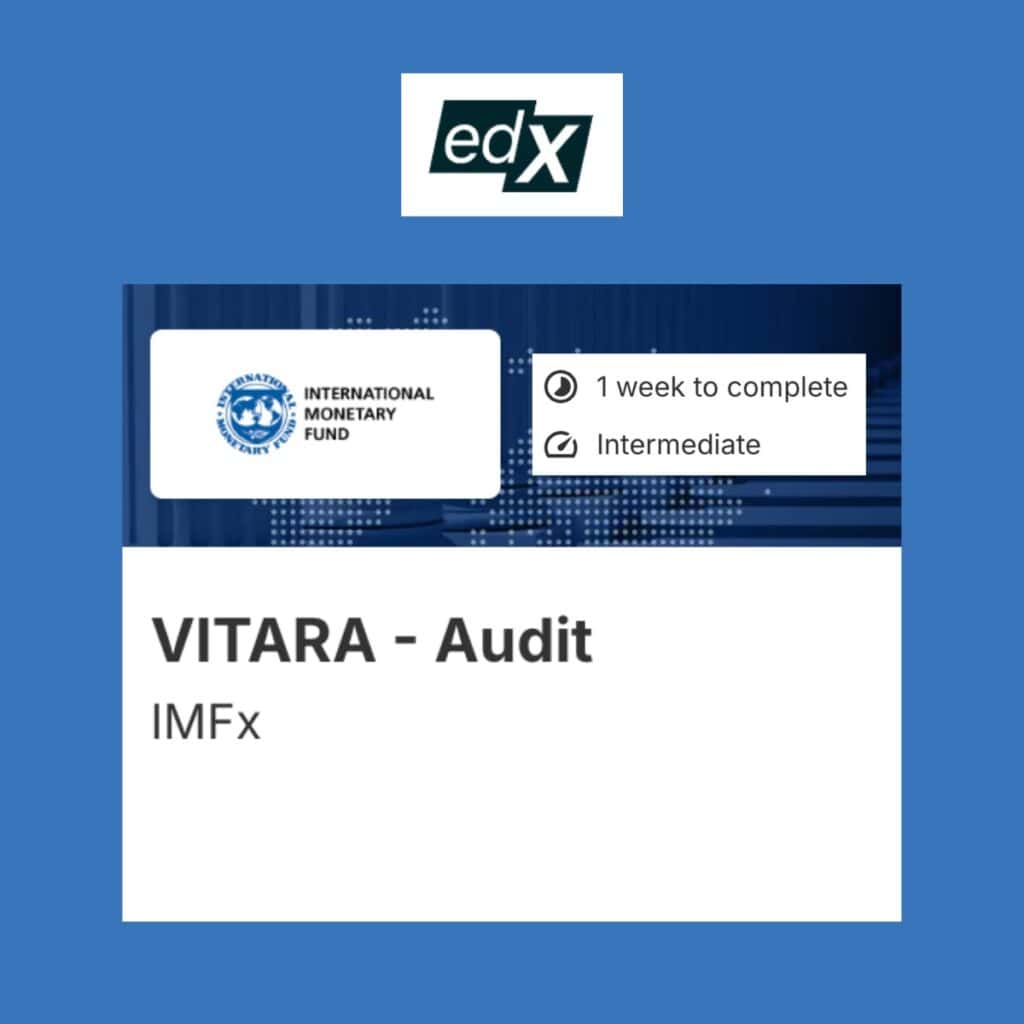
IMFオンライン講座をもっと知る
edX(無料オンライン教育サービス)での受講にあたる手順や、YouTubeで発信している「IMF INSTITUTE LEARNING CHANNEL」についてはこちらをご覧ください。
Japan-IMF奨学金制度についてご質問等ございましたら、お問い合わせページからどうぞ!
2024年9月投稿のアップデートです。
——————————————————————————————————–
2024年 IMF SUMMER SCHOOL4つの講座の紹介
<講座で学ぶ内容>
- Recognize the role, scope, uses, and compilation frameworks for QNA and HFIEAs.
- Review available data sources for compiling QNA and HFIEAs.
- Explain the use of volume measures and the basic relation between value, quantity, and price—expanding on how to detect and address issues such as the need for updated weights; and recognizing the loss of additivity for chain-linked volume estimates.
- Apply basic techniques for compiling benchmarked series and filling data gaps.
- Apply basic seasonal adjustment techniques to time series, based on good seasonal adjustment practices.
- Describe a balanced revisions policy taking into consideration how a related real-time database can be used to assess the reliability of the QNA and HFIEA estimates.
受講申し込みはコース画像をクリック↓
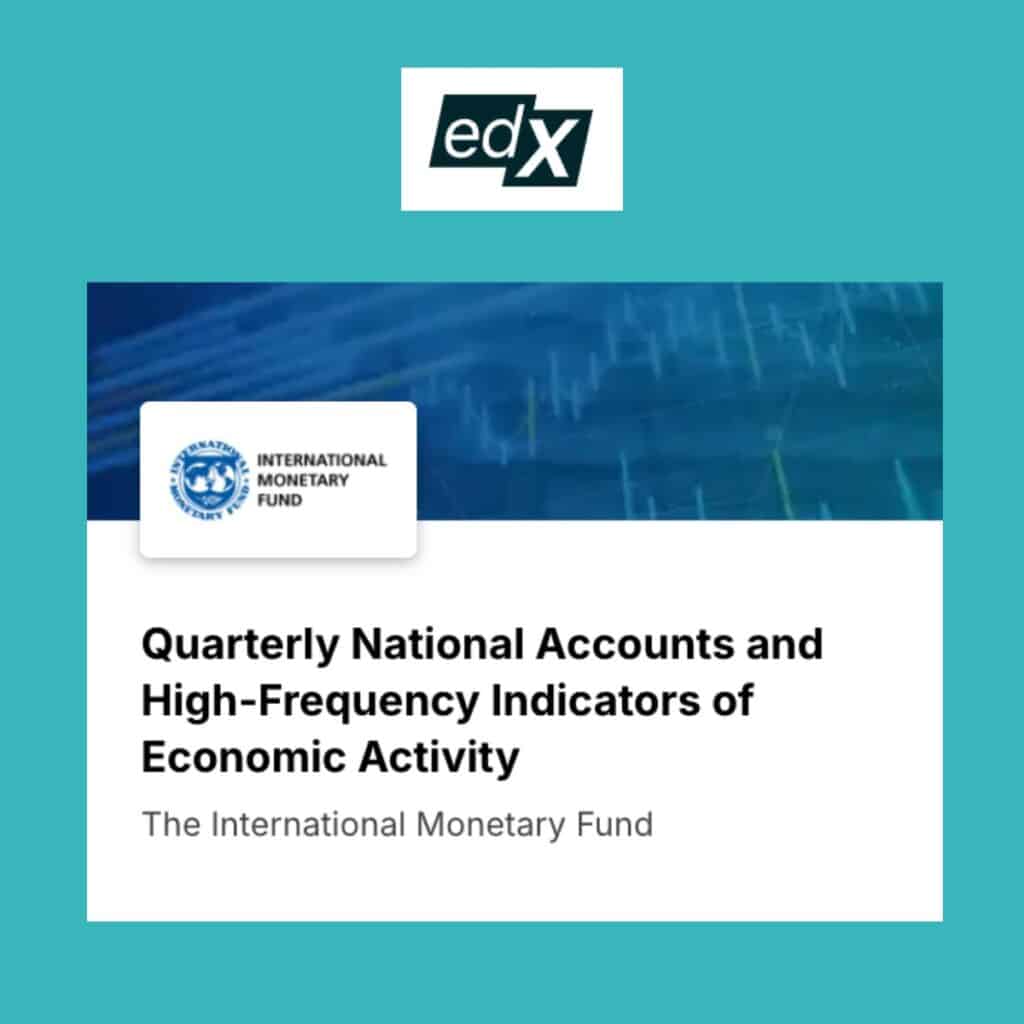
<講座で学ぶ内容>
- Define the key concepts of the FSIs and their application in surveillance and macroprudential analysis.
- Define the conceptual framework including application of the regulatory capital, leverage and liquidity concepts used in FSI compilation.
- Describe the data preparation process for FSI compilation, and apply the recommended aggregation and consolidation methodologies.
- Specify each of the Core and Additional FSIs for deposit-takers and explain the application of each in macroprudential analysis.
- Identify the source data and specify the FSIs for non-deposit takers, and explain their application in macroprudential analysis.
受講申し込みはコース画像をクリック↓
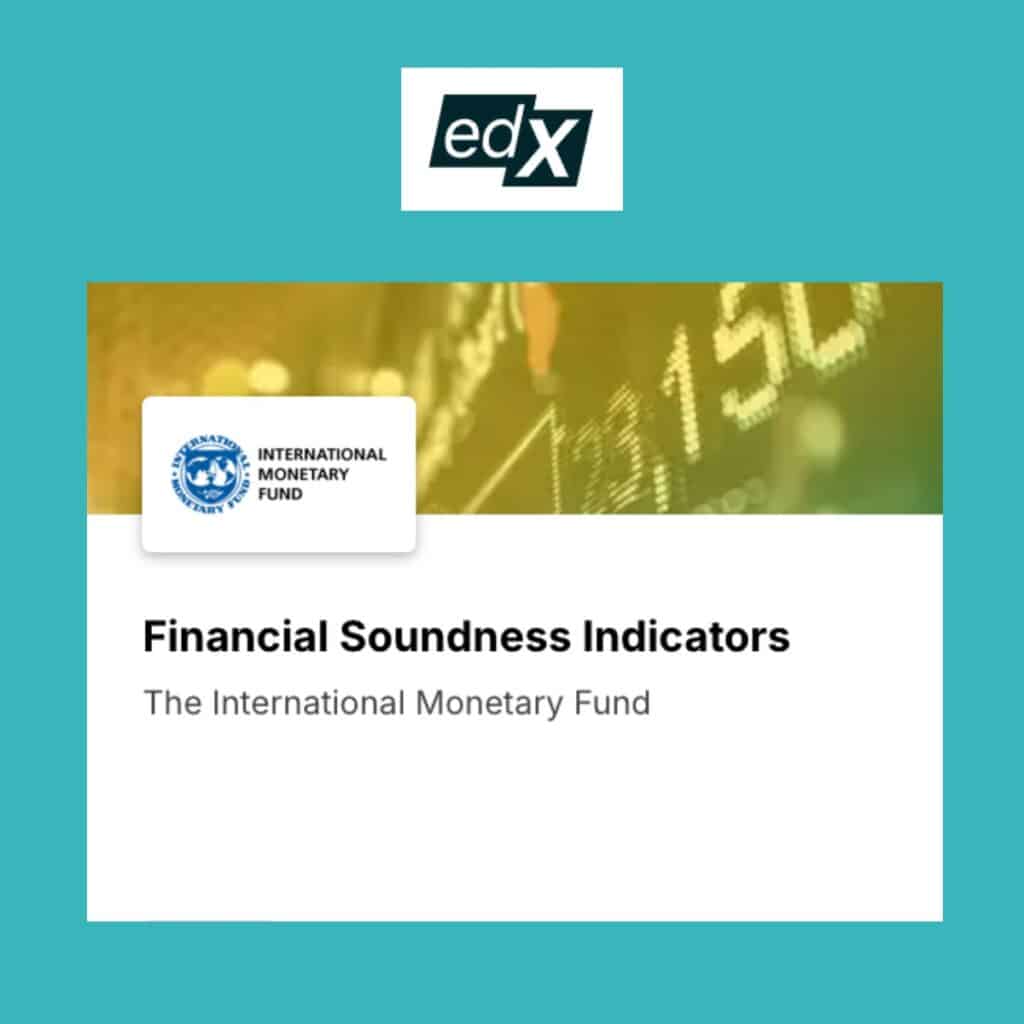
<講座で学ぶ内容>
This module will introduce you to and unravel the mysteries of performance management and performance measurement. While the terms performance management and performance measurement are often used interchangeably, you will see how they differ and how one supports the other. You will develop an appreciation of why you need to create measurable goals and objectives, and learn about both the benefits and the limitations of performance measurement. Last, but maybe most importantly, you will gain insight into organizational culture, and how it can either support or derail performance management.
受講申し込みはコース画像をクリック↓
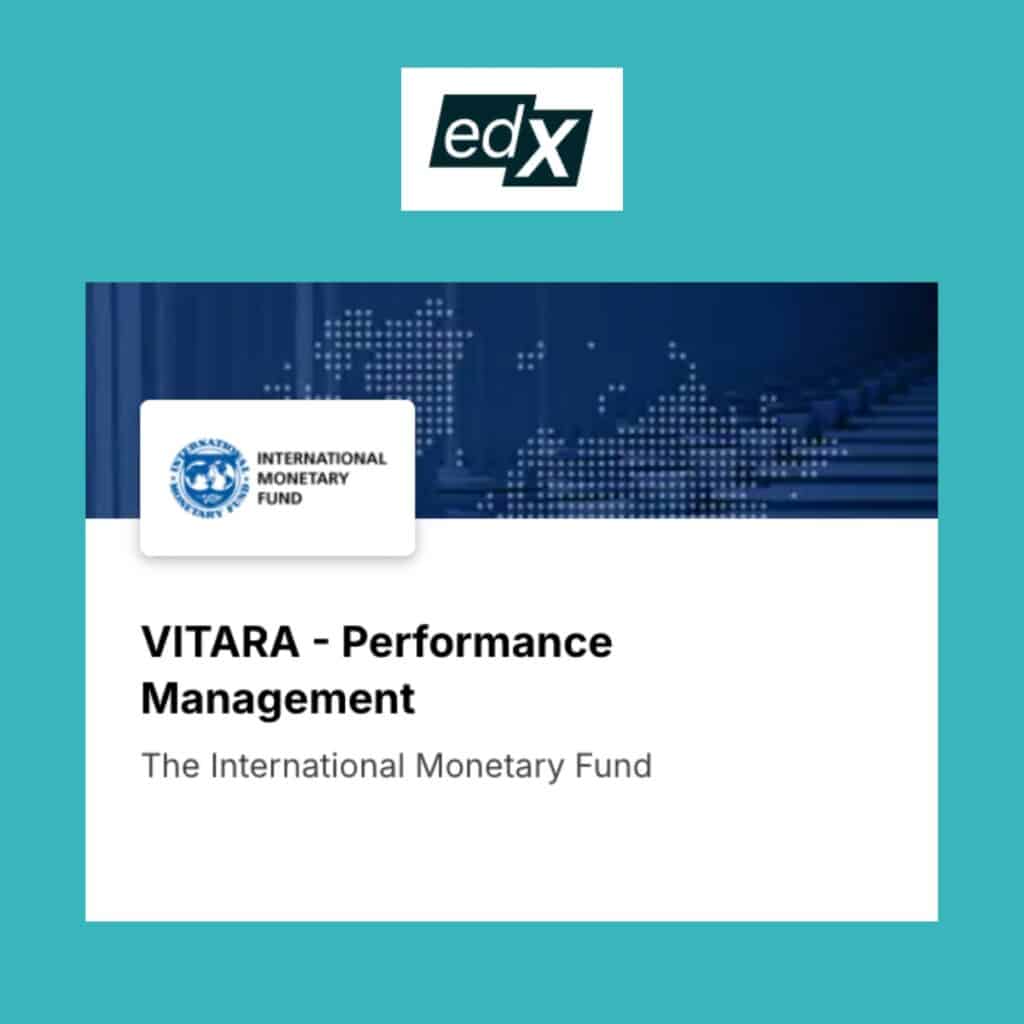
<講座で学ぶ内容>
- Explain the rationale for mitigation as a policy approach.
- Identify the appropriate components of mitigation policy instruments.
- Compare the advantages and disadvantages of carbon pricing as a key mitigation instrument for countries.
- Identify how to analyze and quantify the macroeconomic impacts of mitigation policies.
- Determine key considerations for policymakers when strategizing to scale up carbon pricing at the domestic and international level.
受講申し込みはコース画像をクリック↓
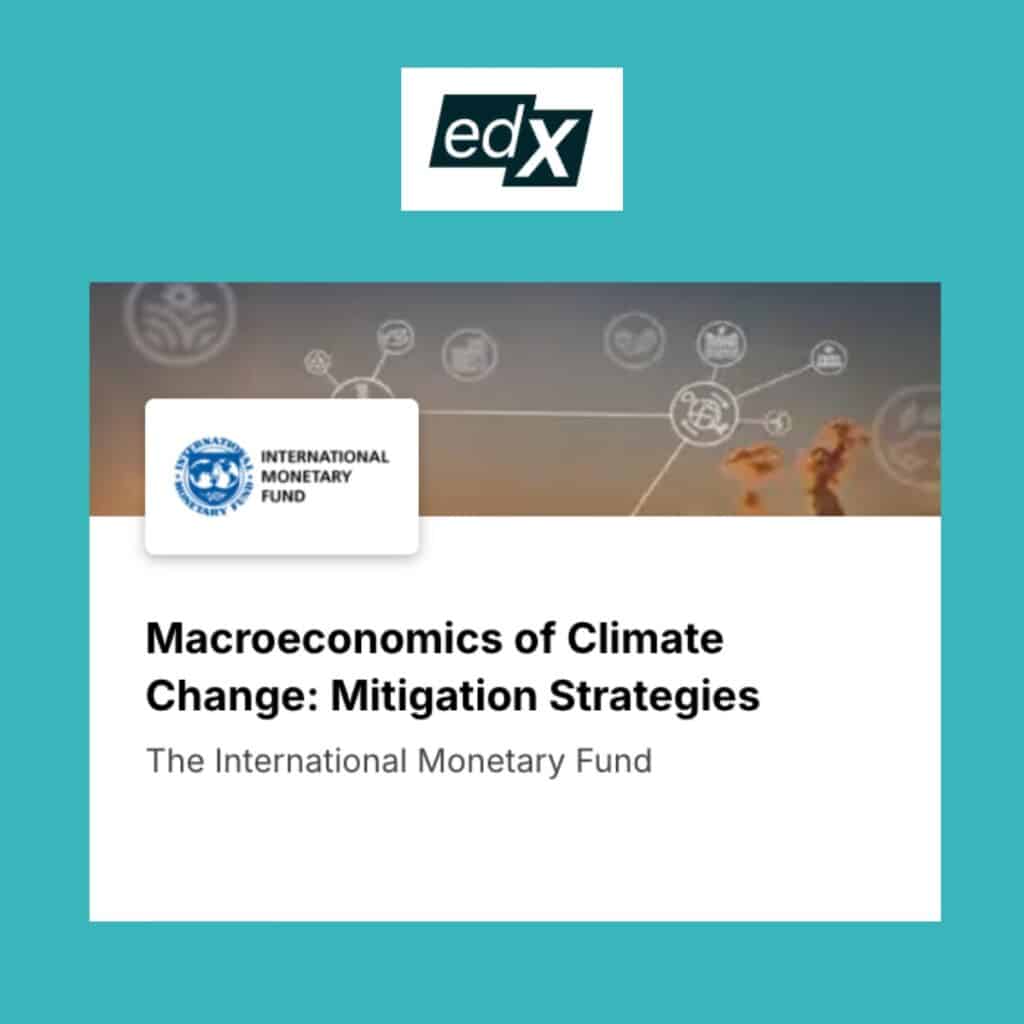
IMFオンライン講座をもっと知る
edX(無料オンライン教育サービス)での受講にあたる手順や、YouTubeで発信している「IMF INSTITUTE LEARNING CHANNEL」についてはこちらをご覧ください。
Japan-IMF奨学金制度についてご質問等ございましたら、お問い合わせページからどうぞ!
